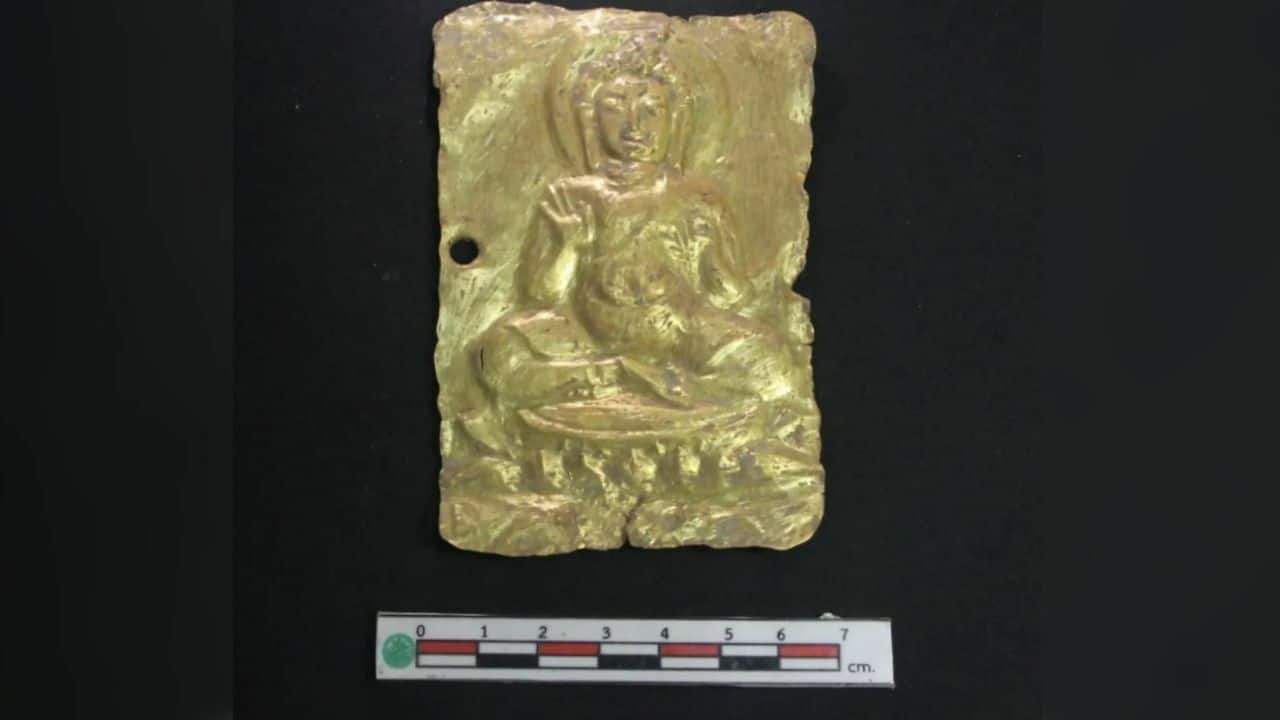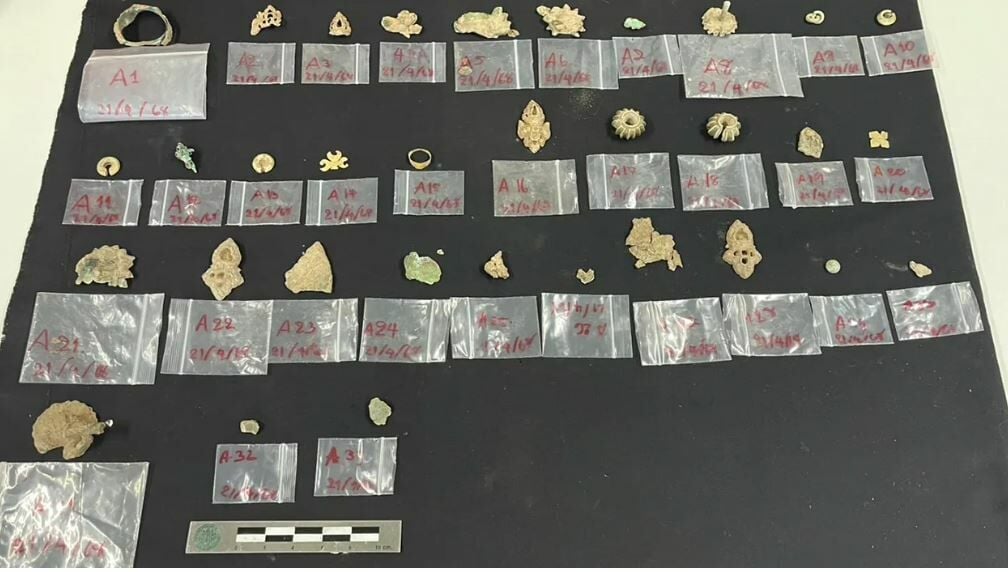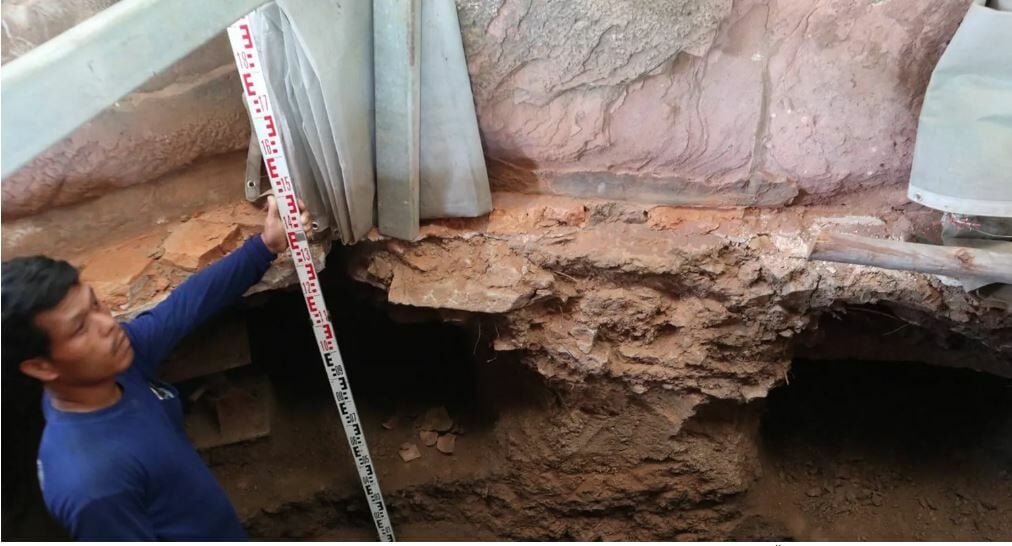Ancient Buddhist relics unearthed in Korat temple dig
Delicate relics hint at forgotten rituals and a thriving spiritual hub along ancient trade routes

In an archaeological breakthrough, ancient Buddhist relics dating back over 1,300 years have been unearthed beneath a historic temple in northeastern Thailand — and experts say the find could reshape our understanding of early Buddhist art in the region.
The rare artefacts were discovered in April during a conservation project at Wat Dhammachak Semaram in Sung Noen district, Nakhon Ratchasima. The site is already famed for its massive Reclining Buddha, but this latest discovery may steal the spotlight.
Phnombootra Chadrajoti, Director-General of the Fine Arts Department, confirmed that the excavation aimed to reduce subterranean moisture near the base of the statue unexpectedly revealed a trove of ancient relics.
“At a depth of just over a metre, our team uncovered an earthenware container holding 33 bronze, silver, and gold items. These finds are extraordinary. They offer significant insights into the craftsmanship and religious devotion of the period.”

Among the items recovered were gold rings, silver earrings, and bronze ornaments — with one spiral-shaped earring closely resembling those found at early Buddhist sites in southern Thailand, such as Phu Khao Thong in Ranong and Tha Chana in Surat Thani.

But it was a second excavation on 30 April that produced the most astonishing artefacts.
Archaeologists unearthed three standout objects:
-
A gold repoussé plaque (8cm x 12.5cm) depicting a seated Buddha in vitarka mudra (teaching gesture), complete with halo, snail-shell curls, and a lotus pedestal.
-
A second repoussé, made from a lead-tin alloy, depicting a standing Buddha in an arched frame, flanked by attendants — one believed to be Brahma.
-
A fragile clump of soil hiding three embedded metal sheets, thought to be ceremonial.
The gold plaque’s design is nearly identical to one found decades ago at Wat Phra Prathon Chedi in Nakhon Pathom, now housed at the Bangkok National Museum. Experts believe these finds confirm that Sung Noen was once a thriving religious hub during Thailand’s Dvaravati era (6th to 11th centuries).

The most delicate item, the soil-embedded metal sheets, was located behind the Reclining Buddha’s head, suggesting the site may have been used for sacred offerings or ritual deposits, reported Thai PBS World.
All items have been transferred to the Phimai National Museum for conservation and study, with researchers hopeful the find will spark renewed interest in the Korat Plateau’s overlooked spiritual legacy.
Latest Thailand News
Follow The Thaiger on Google News:


























